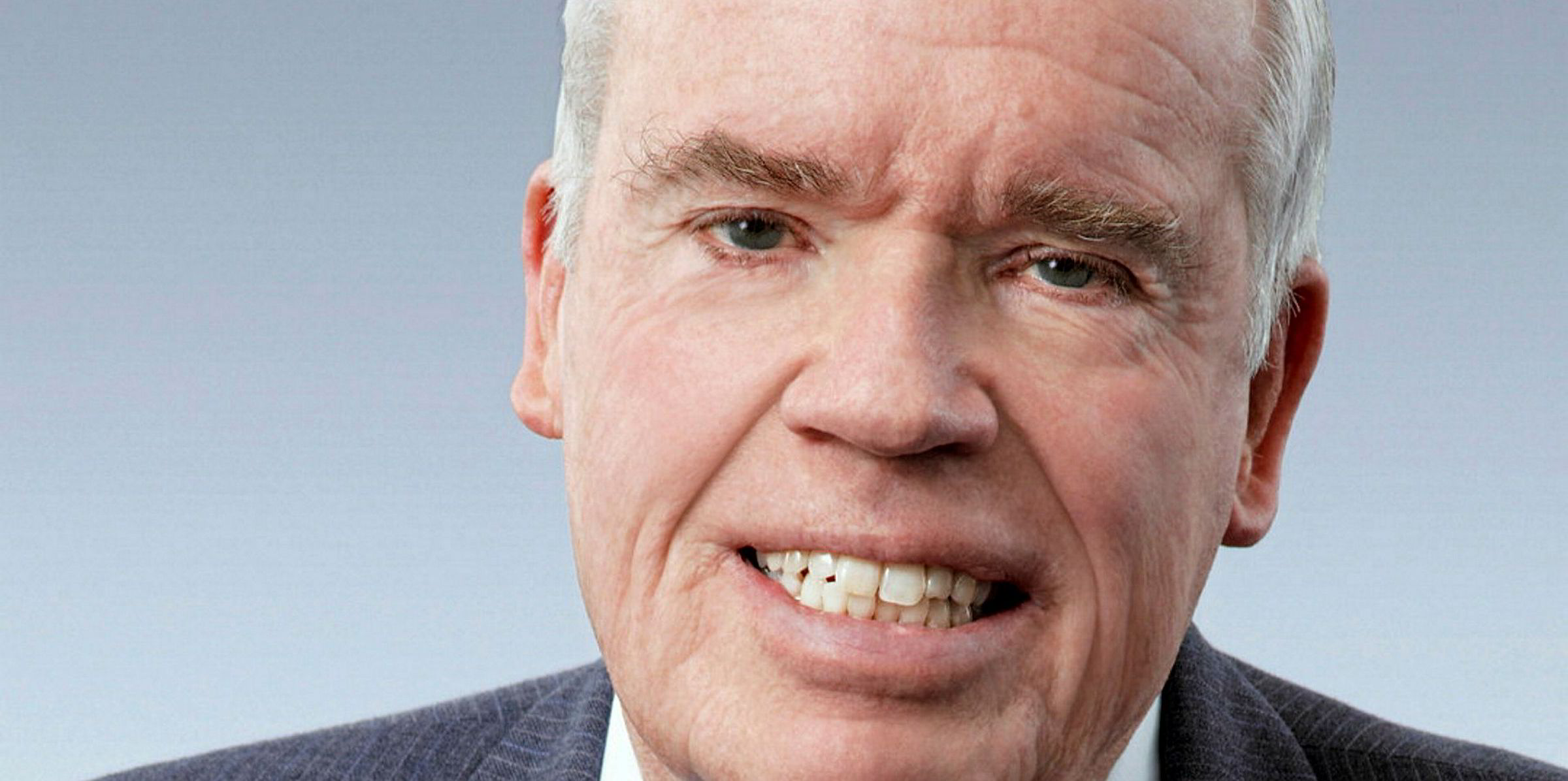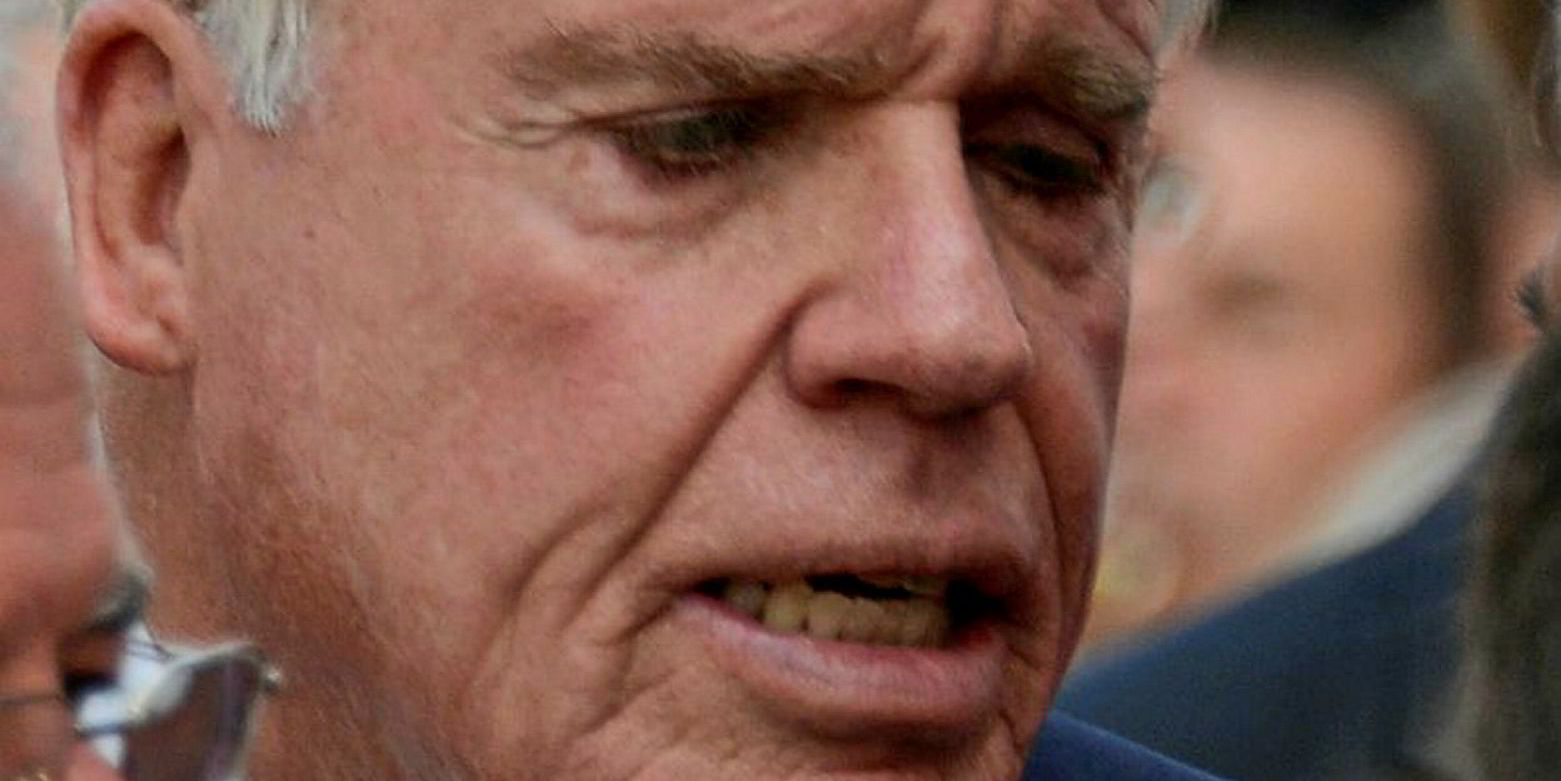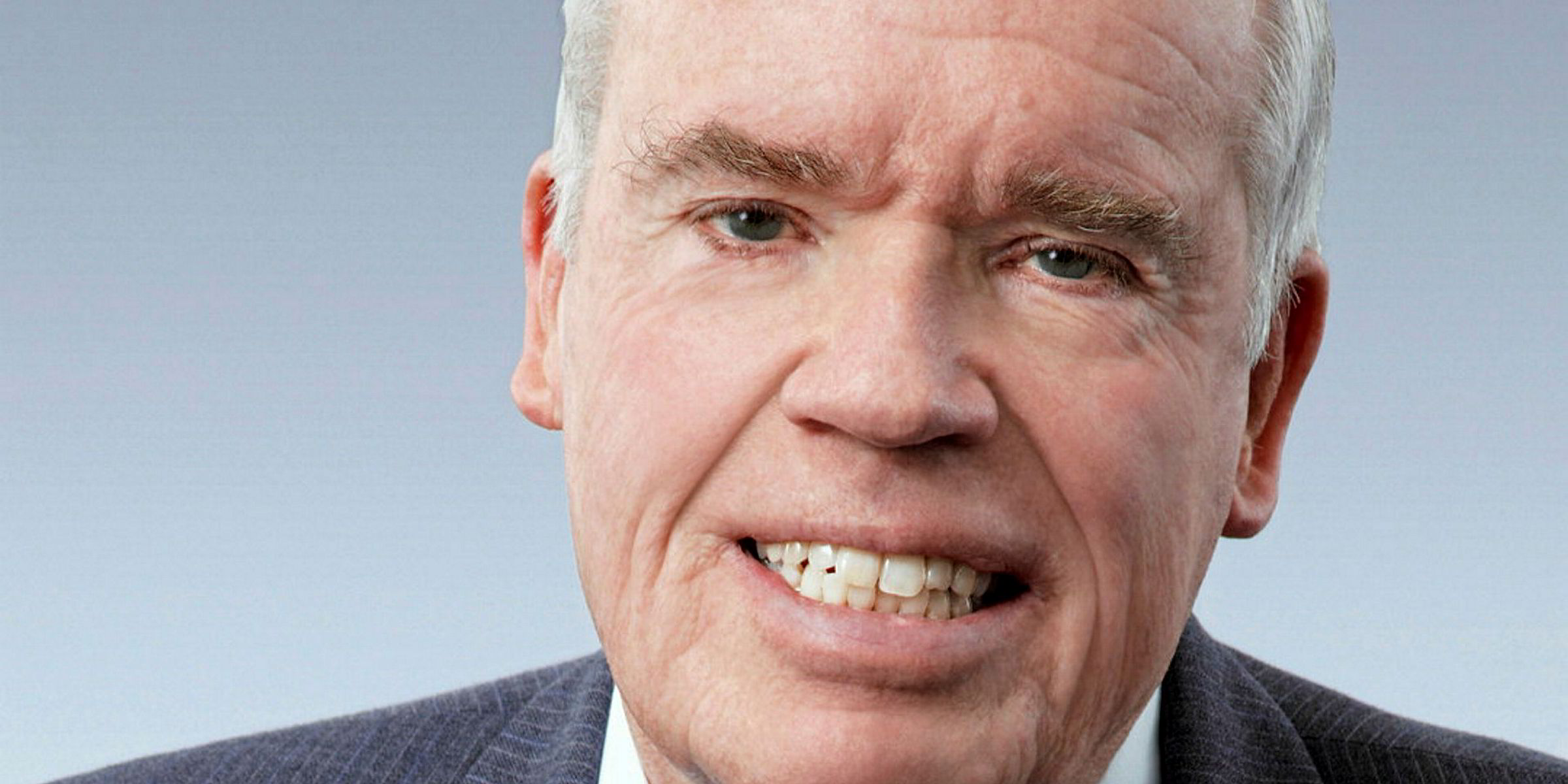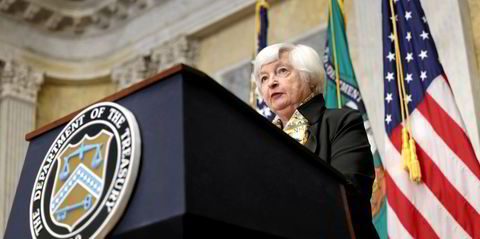Klaus-Michael Kuehne has become the largest shareholder of Germany’s Hapag-Lloyd.
Companies controlled by the German logistics entrepreneur have increased their stake by about 3% to give Kuehne a 29.2% shareholding in the world’s fourth-largest container shipping company.
Kuehne Holding and Kuehne Maritime controlled just 20.5% at the start of 2018.
The larger stake means Kuehne has leapfrogged the Luksic family of Chile, which was previously the largest shareholder.
Luksic family
In recent months, the Luksics' CSAV Germany Container Holding increased its stake in Hapag-Lloyd by 0.3%, to control a 27.8% stake.
The recent acquisitions helped Hapag-Lloyd's stock hit another record high of €79.4 ($86.6) per share on 19 November, nearly four times the €21.24 price per share at the start of the year.
This is good news for Hapag-Lloyd's three other largest shareholders: Qatar Investment Authority (14.5%), Hamburg-controlled HGV (13.9%) and Saudi Arabia's Public Investment Fund (10.2%).
But it means the stock's free float has shrunk to only 4.5% this week — its lowest level since it listed on the German stock exchanges in November 2015.
This has forced its removal from Germany’s SDAX index on 20 June, when it fell beneath the 10% threshold requirement for free-float stock.
Defying expectations
The share price has defied expectations that the stock had peaked in August, when analysts argued its value had risen beyond expectations.
Should any investor increase their stake over 30%, it would trigger a mandatory takeover offer of all remaining shares.
But that is unlikely, given a 10-year shareholder’s agreement between Kuehne, CSAV and the City of Hamburg to take key decisions together.
Speculation that the rise in Hapag-Lloyd’s share price is related to a potential merger with Ocean Network Express — the company's partner in THE Alliance — has been flatly refuted.
Meanwhile, Hapag-Lloyd reported a group profit of €297m for the nine months to 30 September, up from €12.5m in the same period last year.
Revenue jumped to €3.24bn from €3.05bn, despite a slight dip in volumes in the three months as it achieved a rate of $1,084 per teu versus $1,055 per teu in 2018.
"Despite geopolitical tensions and trade restrictions, we benefited from higher transport volumes and better freight rates, and also kept a close eye on our costs,” chief executive Rolf Habben Jansen said.
Hapag-Lloyd expects an Ebitda in the range of €1.6 to €2bn for the full year.






